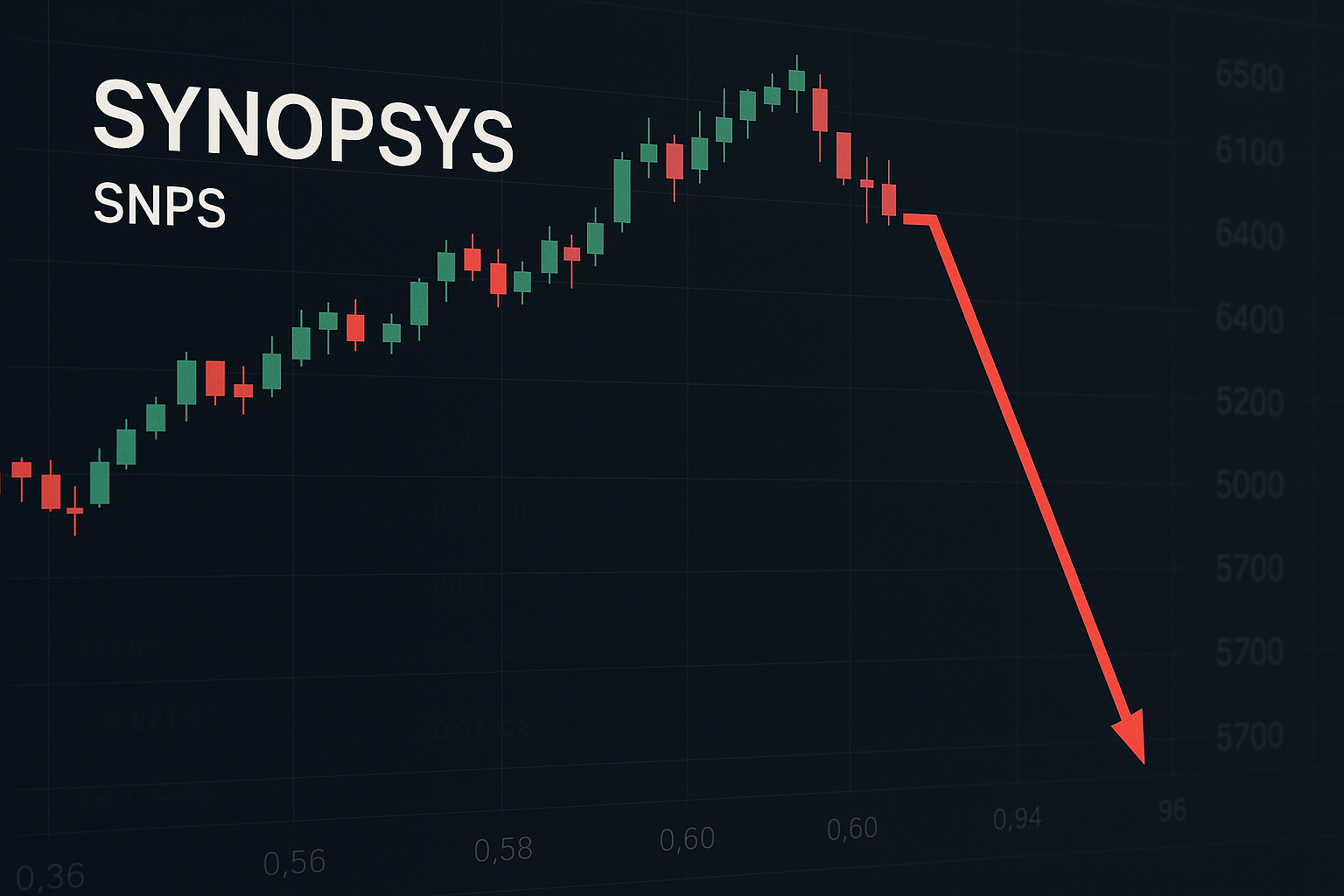Synopsys took a beating yesterday that would make even seasoned market watchers wince. A 30% plunge in a single trading session? That's not just a bad day at the office—it's the kind of drop that makes executives check their retirement accounts and investors question their life choices.
I've been tracking the semiconductor space since the early 2000s, and there's something particularly fascinating about watching what happens to the picks-and-shovels players in this gold rush. Synopsys isn't making the chips that power your iPhone or cloud server; they're making the complex software tools that everyone else uses to design those chips. They're supposed to be the steady, reliable player—the adult in the room, if you will.
So what in the world happened?
The short answer is both simple and perplexing. Synopsys actually beat earnings expectations for the quarter. Let that sink in. They cleared the bar analysts had set. The problem? Their forward guidance came in below what Wall Street wanted to hear.
In any normal market environment, this might have triggered a 5-8% selloff. A wrist slap. A reminder to do better next time.
But we're not in a normal market environment, are we?
We're living through what I'd call "expectation hyperinflation" in tech stocks. It's no longer enough to meet or even slightly beat expectations. The market demands companies to demolish forecasts, then guide even higher, preferably while executives do backflips and promise the moon. This is especially true for anything even tangentially related to AI.
Look, the numbers themselves weren't actually terrible. Revenue grew 15% year-over-year. Margins stayed healthy. This is hardly a business in free-fall.
But when you've been priced for perfection (and Synopsys was, with a P/E ratio north of 40), delivering merely "good" results is tantamount to failure. It's like bringing home a B+ when your parents have already bragged to the neighbors about your straight-A average.
So is this brutal selloff justified? I see three possible explanations:
First, maybe this is simply a healthy reset of runaway expectations. The market got ahead of itself on the AI design boom timeline, and reality is forcing a recalibration.
Second—and this is more concerning—perhaps Synopsys is the canary in the semiconductor coal mine, detecting weakness in chip design activity before it becomes obvious elsewhere.
Or third, this could be more about market positioning than fundamentals. Too many funds were overweight semiconductor stocks and needed an excuse—any excuse—to trim their exposure.
(Having covered similar selloffs in the past, I suspect it's some combination of the first and third factors.)
The million-dollar question now: Is this a buying opportunity or the beginning of something worse?
History suggests that quality companies experiencing technical selloffs—rather than fundamental business collapses—often represent good entry points for investors with patience. And make no mistake, Synopsys is still a quality company. They maintain a near-duopoly with Cadence in the EDA (Electronic Design Automation) software market, a business with barriers to entry higher than the Himalayas. Their AI-related business continues to grow. And that lofty P/E ratio? It's now closer to 30—still premium, but no longer in the stratosphere.
That said... catching falling knives is a notoriously bloody business. Technical damage this severe typically needs time to heal. The institutional investors who got caught flat-footed by this announcement need time to lick their wounds and reassess their positions. Some will continue selling in the days ahead.
My own approach to situations like this is gradual accumulation. Maybe a quarter position now, another quarter if it drops another 5-10%, and so on. I'm not trying to nail the exact bottom—that's a fool's errand. I'm trying to establish a reasonable cost basis in a company that, barring some major shift in the competitive landscape, should be substantially higher two years from now.
There's something else worth noting here. The severity of the market's reaction might be telling us something important about market psychology. When fundamentally sound companies get absolutely clobbered for modest misses, it often signals we're in the later innings of a momentum-driven phase. This doesn't necessarily mean the bull market is finished, but it does suggest the margin for error has become razor-thin.
As for me? I'm adding Synopsys to my shopping list. Not for immediate purchase, but to watch carefully in the coming weeks as the dust settles and cooler heads prevail.
Sometimes the market hands gifts to those patient enough to wait for them. This might just be one of those times.
